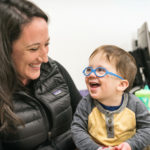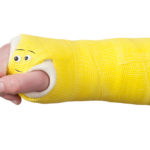Still within reach: Virtual visits keep Hadley plugged into stroke care
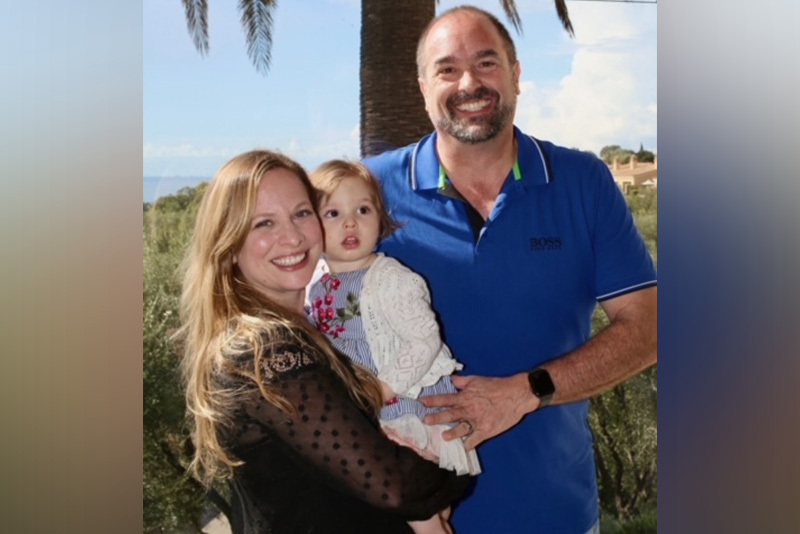
When it’s time for Hadley Rizza to see her care team in the Stroke and Cerebrovascular Center at Boston Children’s Hospital, she doesn’t have to leave home. Although Hadley and her parents, Eric and Meredith, live in the Pacific Northwest, appointments with her clinicians are just a click away, thanks to the hospital’s Virtual Visits program.
Fragmented care
When Hadley was about 4 or 5 months old, her parents began to notice that she seemed to favor her left side. Physicians at their local children’s hospital diagnosed her with a pediatric stroke — but for Eric and Meredith, questions still remained. “Her care was really fragmented,” remembers Eric. “We felt like we had to be detectives to find out what the next steps were.”
The couple found themselves feeling completely alone. “Not only were we dealing with the grief that comes along with a diagnosis like this, but we were also facing a seemingly endless amount of uncertainty: Would Hadley walk? Would she talk? Would she live independently? And most importantly, would she be happy?” says Meredith. “There’s no manual for this and we were shuffled off from our first meeting with a simple ‘call your local Early Intervention practice.’ We were gutted and confused.”
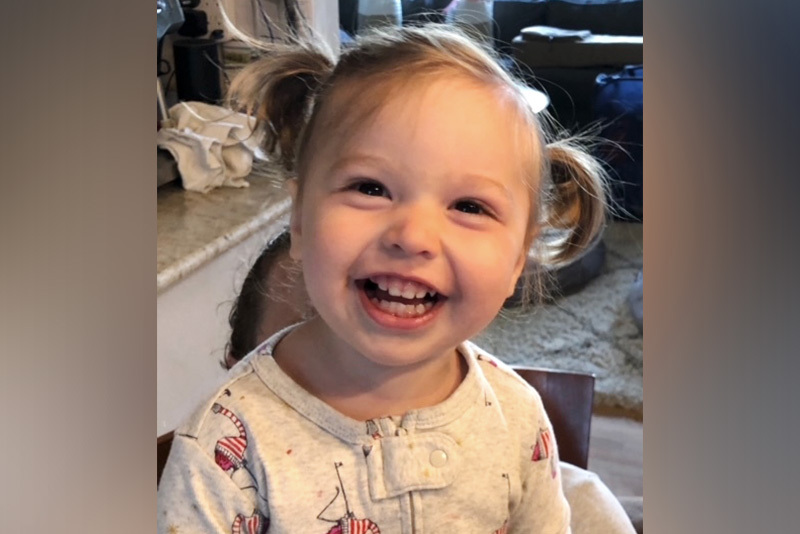
Coming to Boston
Meredith, who is originally from Massachusetts, had visited Boston Children’s as a child and decided to reach out for an appointment. In Boston, she and Eric say they found peace of mind — and hope. “In our first appointment at the Stroke and Cerebrovascular Center, we asked Dr. Laura Lehman, ‘Who is the point person for Hadley?’ Without missing a beat, she said, ‘I am,’” says Meredith. “We felt confident that Hadley wasn’t just another name on a patient chart. She had a face, she had a story, and she now had a team behind her and supporting her.”
“We saw all of Hadley’s clinicians in one visit — it was all integrated, and they shared their notes with each other,” says Eric. When it came time to leave for home, the couple felt more at ease with Hadley’s care.
Now 2 years old, Hadley primarily sees Dr. Lehman, the center’s outpatient medical director. She’s also benefited from visits with the rest of the clinical team, including physiatrist Dr. David Fogelman.
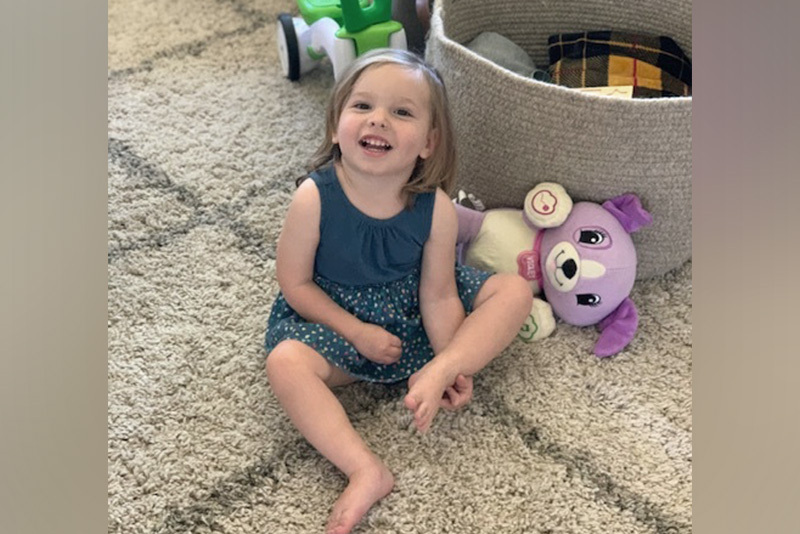
Advantages of virtual visits
Although current social distancing measures have made many aspects of life more challenging, Hadley and her parents say they’ve found advantages to virtual visits. Eric and Meredith, who have been able to work remotely, enjoy being able to speak with Hadley’s clinicians together, while she plays nearby. They also send videos to the care team so they can see how she’s progressing.
In fact, their experience with virtual communication was helpful in diagnosing Hadley with focal seizures. “Being remote, I know that I have catch something on video in order to get feedback on it,” says Meredith. “One day, I saw Hadley do something strange and grabbed my phone to record what turned out to be a focal seizure.” Meredith immediately sent the video to Dr. Lehman, who quickly called her back and diagnosed Hadley. “We were able to get Hadley on medication that same day to control her seizures,” Meredith remembers.
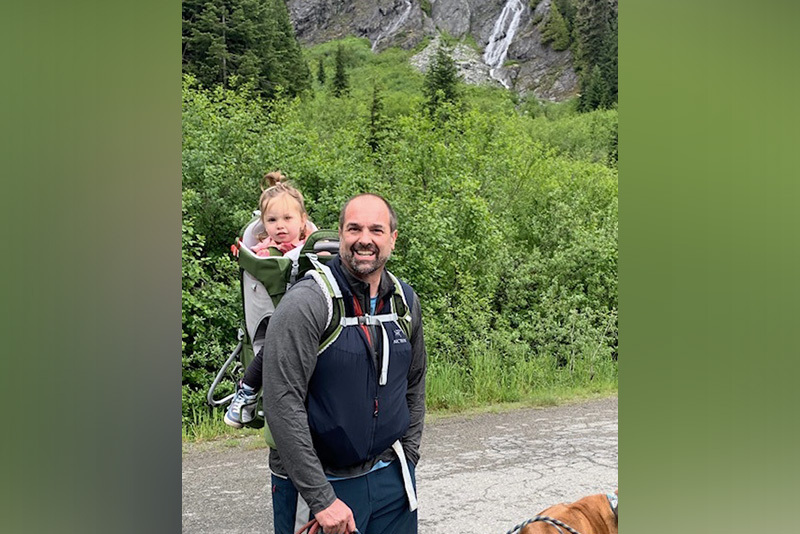
‘It all works’
Hadley is happiest outside, running through the “jungle” (which are really shrubs and trees in her backyard) or helping her parents in the garden. She also loves books, music, dancing, and is the kindest and most welcoming resident in the neighborhood, often waving and saying hello to passersby during her walks. “She’s really confident and friendly,” says Eric. “We got super lucky.”
And the family is content to continue her virtual visits for now. “For hands-on treatment, nothing replaces being in the clinic, but we haven’t noticed a drop in the attention we receive from Hadley’s team,” says Meredith. “We still feel plugged in to Dr. Lehman and the center. It all works.”
Learn more about the Stroke and Cerebrovascular Center.
Related Posts :
-

Care for stroke lets Matty just be a kid
Most adults might encourage kids to behave themselves, but Matthew Marino’s doctor wants to help him make mischief. “He ...
-

I-ACQUIRE: A new study for young stroke patients
Could I-ACQUIRE help your child?To qualify for this study, your child must meet the following criteria: · &...
-

Simon's incredible progress after neonatal stroke
Simon Lieffers is “a very busy boy,” says his mother, Cara. At 2 1/2 years old, he’s obsessed with trucks and ...
-

Embracing the benefits of virtual visits during the COVID-19 pandemic
Sheltering at home during the coronavirus doesn’t mean you have to sacrifice high-quality health care. Many families are finding ...


